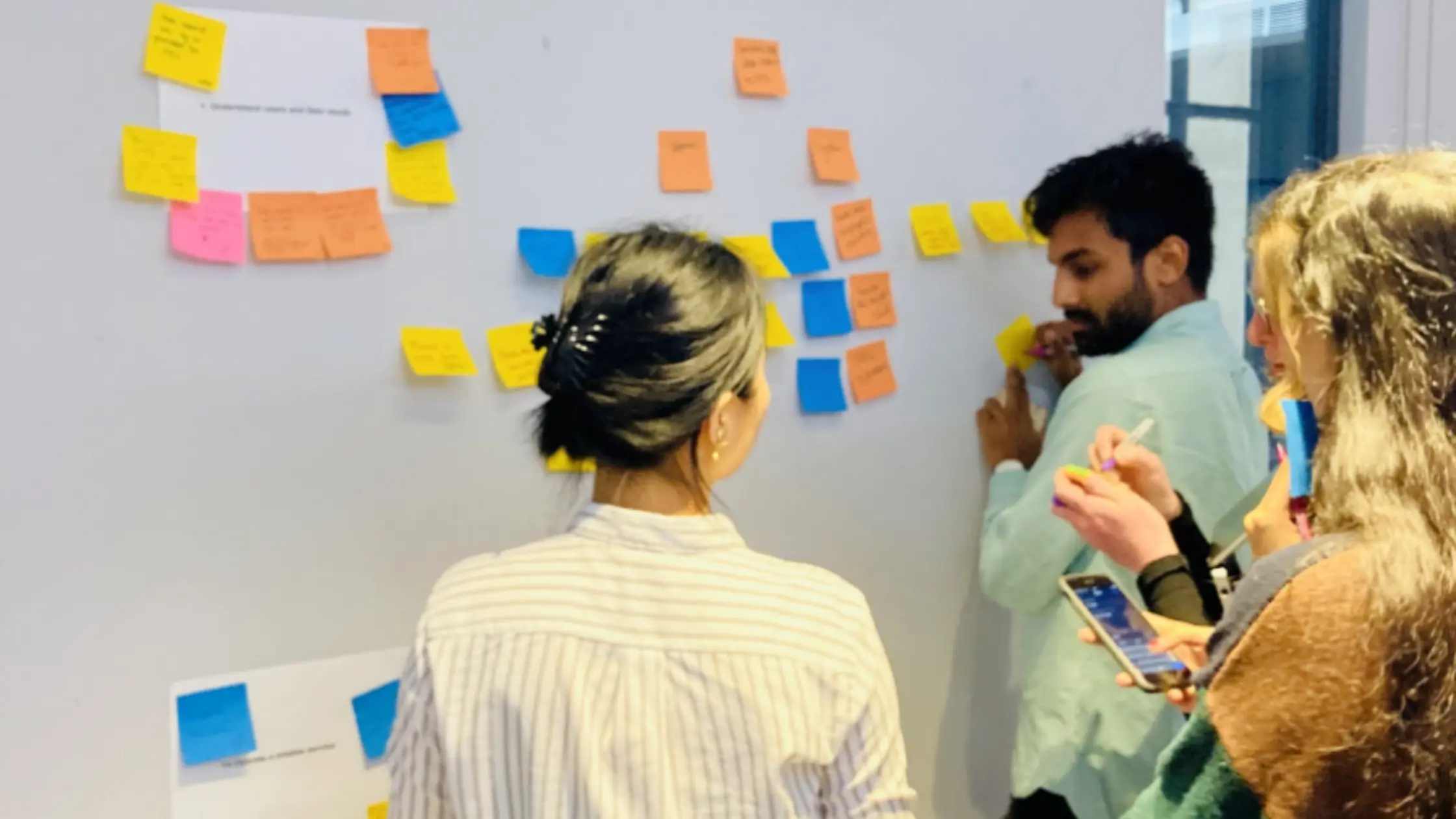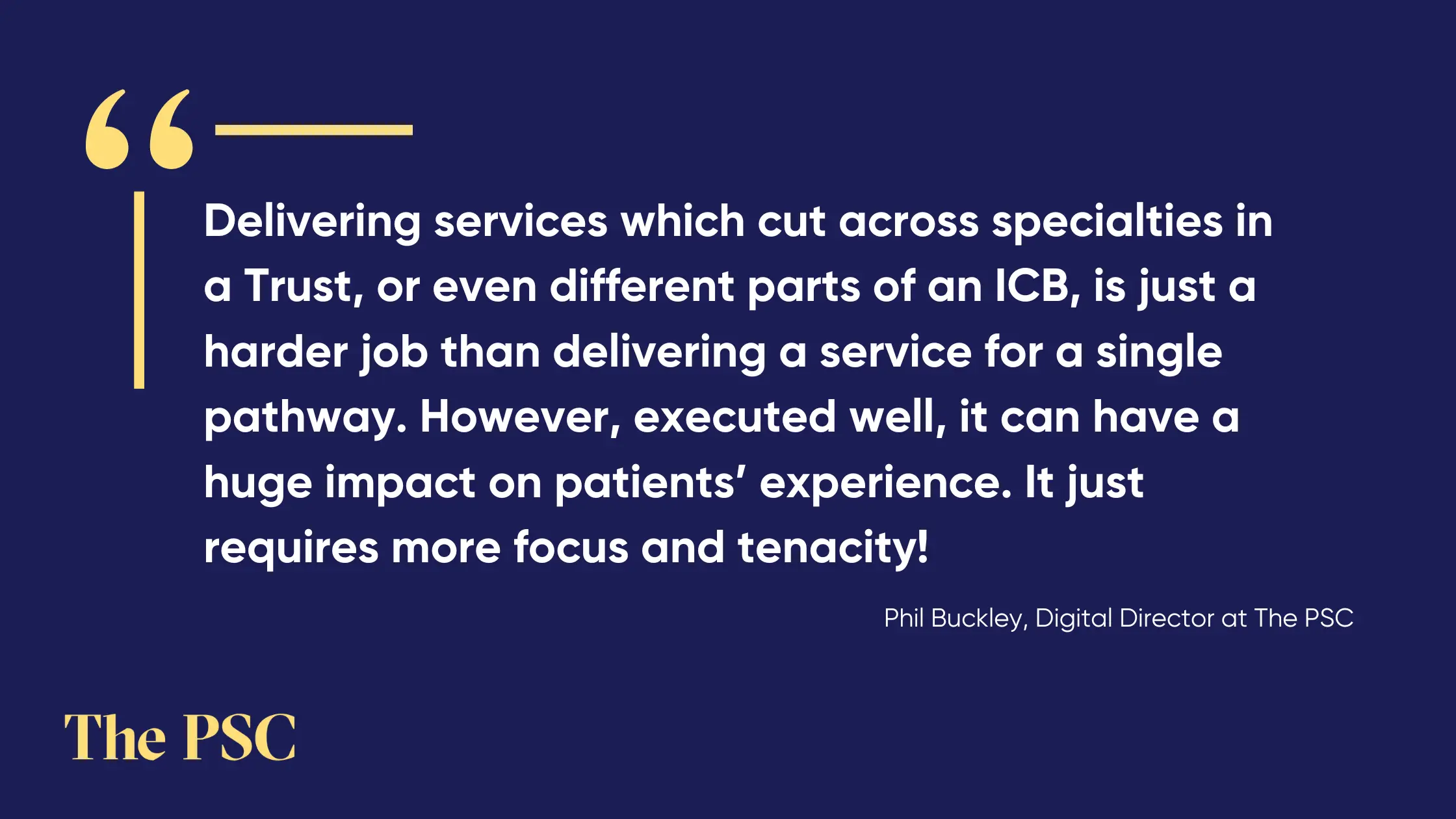03/01/2024
Projects into Products: introducing user-centred design to the NHS
Three barriers to making users happy and how to overcome them
The UK Government has been a huge proponent of user-centred design - the Government Digital Service (GDS) has led the way and, by and large, other departments have all followed suit. There is literally a manual to follow outlining the approach and everything you need to know, all beautifully laid out using shared components and even the same job titles in the DDaT capability framework. To top it all off - all services are assessed with the same criteria in the GOV.UK service standard.

A selection of complex user interfaces which doctors are forced to use to order tests electronically.
How it’s (not) being followed in the NHS
The NHS has followed suit in many areas, but especially in more complicated areas, clunky UI abounds, and the old technology focused way of doing things is having similar difficulties delivering results. Indeed, some notable examples of public sector digital delivery failure have come from the NHS - the National Programme for IT being a particularly conspicuous example. Despite this, and the UK Government’s clear approach, when you search the NHS jobs platform for “product manager” the platform crows “Did you mean product manager? Search instead for project manager?”.
Despite the same ingredients being in place - a wonderfully health tailored service version of the service manual and plenty of national APIs and components - why do ugly interfaces abound which require pages and pages of training documents for users to be able to use them? Why are patients lost in a sea of different patient portals and hospital at home technology which doesn’t link up?
What can we do about it?
Having completed 100s of projects across the NHS and Central Government - The PSC has identified three main barriers, each of which are addressed below:
-
Lack of user-centred design skills in existing staff
-
Governance that doesn’t encourage an Agile approach
-
Many project teams rather than one service team
Barrier 1 - Lack of user-centred design skills in existing staff
Problem: Many project and programme managers don’t know enough about the user-centred design process for carrying out digital projects to be confident in applying it.
Solution: When hiring new staff, the UK government has a DDaT job capability framework giving standard expectations to be used in job descriptions and hiring decisions. This is well understood and used across Government and the private sector. Alternatively, upskilling existing project and programme managers, or other management staff can be a great way to start introducing user-centred design into your organisation.
How The PSC can help: The PSC has a tried and tested model for introducing user-centred thinking to teams, organisations and individual staff members who are new to it. Our Digital and User-Centred Projects training represents a cost-effective way to upskill existing team members without needing to recruit new ones. Contact capabilities@thepsc.co.uk to learn more.

Senior Service Designer Katie leads an activity in our Digital and User-centred Projects training.
Barrier 2 - Governance that doesn’t encourage an Agile approach
Problem: Multi-disciplinary teams are common across NHS clinical teams - everyone brings their expertise to work as one team - however this isn’t as common in NHS digital projects. Traditional NHS governance methods often don’t suit digital projects: their focus on detailed upfront planning and formal documentation/process requirements naturally lead to a rigid Waterfall delivery method. The digital project team is not empowered to check work with users throughout or to make changes as it becomes clear a new approach is needed.
Solution: Governance should enforce teams to follow the NHS service standard approach and, much like central government, should assess teams against these standards before allowing any (further) spending on projects.
How The PSC can help: Our Senior Partner Dr Antonio Weiss has helped organisations to create governance that enables a user-centred approach - contact hello@thepsc.co.uk to learn more about how Antonio and The PSC team can help your organisation develop governance that lets good digital solutions thrive.
Barrier 3 - Many project teams rather than one service team

Problem: Additionally, many pathways cross organisational boundaries so teams that should be working together to deliver a full end-to-end journey instead work in isolation to deliver tiny parts of the full solution. This leads to a disjointed experience for users and slower delivery by these teams.
Solution: Where possible project teams should include all team members needed to deliver one journey rather than splitting them out into separate teams. If this requires cross-organisational working, they should work under a single team structure rather than in individual silos.
How The PSC can help: Our Digital Director Phil Buckley has a wealth of experience taking a service-centred approach to break down silos across and between organisations - contact hello@thepsc.co.uk to learn more about how Phil and The PSC team can help your organisation create great services.
Latest News & Insights.

The PSC is committing to new, more challenging sustainability targets
We are delighted to announce that we are committing to new, ambitious emission…

What does a good net zero programme look like for Integrated Care Systems?
The NHS has committed to reaching net zero in 2045 and Integrated Care Systems…

The PSC Wins Double Silver at the HSJ Partnership Awards 2024
We are delighted to announce that we have been awarded double silver at The HSJ…